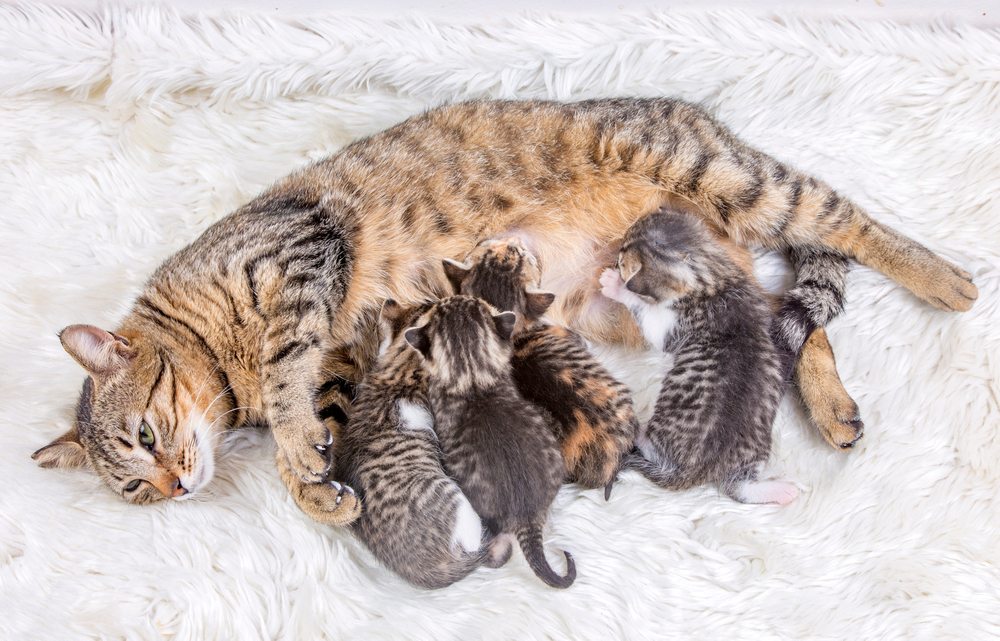Myths about pets are always circulating. One of the most common focuses on reproduction and sterilization surgeries (i.e., spay and neuter surgeries). Spaying or neutering pets is one the least understood—yet most important—procedures, and a major component of responsible pet ownership. Follow along as our Advanced Veterinary Care of Pasco team dispels myths about spaying and neutering pets.
Myth: My pet needs to have at least one litter
Fact: While pets certainly have emotions and feelings, they don’t get FOMO from not having puppies or kittens. Some pets make excellent “mothers” to foster litters, but they don’t pine for babies of their own. Attributing human emotions and behaviors to pets (i.e., anthropomorphizing) is common, especially with reproduction, but your female pet definitely is not dreaming of becoming a mother, and your male pet is not concerned about fathering offspring to carry on his name.
Pet owners also opt not to spay or neuter their pets so their children can experience the miracle of birth. However, your child is unlikely to witness the actual birthing process, which usually occurs at night, in a secluded area, or when the pet is alone. Rather, you should teach your child about responsible pet ownership and avoid contributing to the pet overpopulation problem. Numerous online educational videos outline the birthing process that your children can watch—with no potential pet emergency that would upset them.
Myth: My pet will feel like less of a male or female
Fact: The majority of pets left intact are male, often because of a misplaced sentiment about masculinity. Rest assured that your male pet is not worried about retaining his testicles, and will not feel less of a “man” after being neutered. Your female pet also does not care about gender identity—only where her next meal is coming from. Thoughts about gender identity are solely human constructs that never occur to your pet.
Myth: My pet will get fat and lazy
Fact: Pets become fat and lazy because their energy consumption and expenditure are not balanced. In a nutshell, pets eat too much and exercise too little. While reproductive hormones can drive pets to seek out mates and defend their territories, and thus get more exercise, you can interact with your pet and provide the same amount, or more, activity. Feed your pet an appropriate amount and set aside time for daily play and exercise to maintain health and fitness.
Myth: My purebred pet needs to carry on the breed
Fact: No shortage of purebred pets are looking for loving homes. Breed rescues focus on specific breeds or pets who embody certain characteristics, such as livestock guardian dogs, giant breeds, and more.
Additionally, not all purebred pets are well-bred pets. Throughout history, a particular breed has surged in popularity because of a movie or celebrity. For example, dalmatians became commonplace after 101 Dalmatians was produced, with “breeders” trying to keep up with demand by flooding the dog population with poorly bred puppies. Belgian Malinois experienced the same popularity after the release of Dog, although this breed is certainly not meant for the uninitiated.
Ideally, purebred pets should be bred only to pair desirable health and temperament traits that will better the breed.
Myth: Spaying and neutering pets is unhealthy
Fact: While growing puppies and kittens need hormones to grow properly, those same hormones and their reproductive organs can lead to numerous health and behavior problems. Potential problems in intact pets include:
- Mammary, uterine, testicular, or prostate cancer
- Prostate or uterine infections
- Unplanned litters
- Emergency Cesarean section (i.e., C-section)
- Problematic behavior (e.g., mounting, aggression, roaming, urine marking)
Spaying or neutering your pet at the appropriate time can eliminate or at least reduce the risk of problems. For example, spaying your female pet before her first heat cycle almost completely eliminates her risk of developing a mammary tumor, which are almost always malignant in cats.
Myth: Spay and neuter surgeries are too expensive

Fact: The cost of a spay or neuter surgery cannot be compared with the cost of the many problems an intact pet can develop or the cost of raising a litter of puppies or kittens. Spaying or neutering your pet not only saves you money by eliminating the risk of costly health issues but also grants priceless peace of mind knowing that your furry pal cannot develop a life-threatening infection or cancer.
If you have questions about the innumerable health and behavior benefits of spaying or neutering your pet, ask our Advanced Veterinary Care of Pasco team. We’d be delighted to discuss the pros and cons of sterilization, how to choose the most appropriate time for surgery, and what to expect.








Leave A Comment